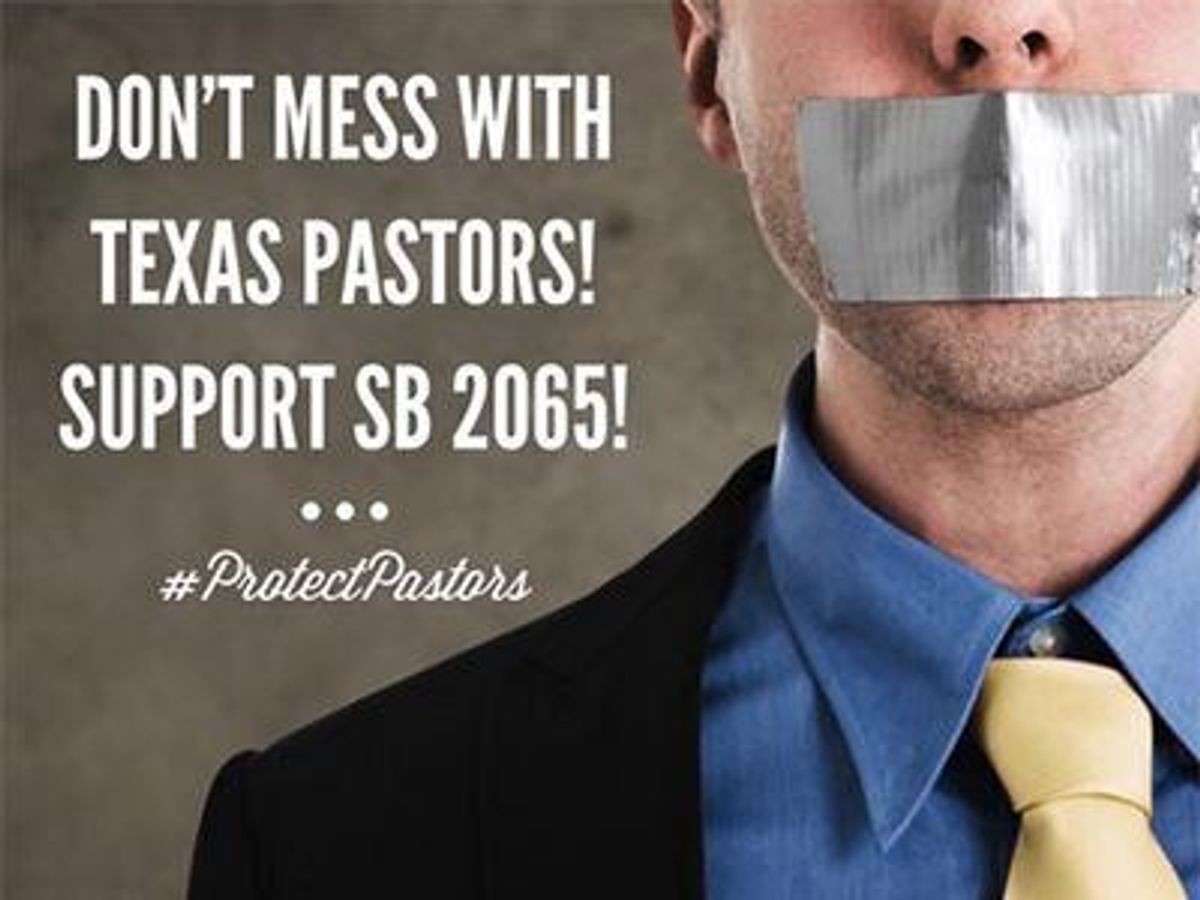The Texas House of Representatives has tentatively but overwhelmingly approved the Pastor Protection Act, a bill aimed at protecting churches and clergy from government penalties and private lawsuits if they refuse to host or perform same-sex weddings.
The measure passed today by a vote of 141-2, and now awaits just a final vote before going to Gov. Greg Abbott for his expected signature, The Texas Tribune reports; it's already passed the state Senate. There's no word on when the final vote will come, but the legislative session ends June 1.
Some politicians and activists who had opposed the bill doubted if it was necessary; religious institutions' right to choose which couples they'll marry is already protected by the First Amendment to the U.S. Constitution, which guarantees freedom of religion, as well as by the Texas Religious Freedom Restoration Act of 1999.
The only no votes on the measure came from Democrats. One of them, Terry Canales, challenged the bill's House sponsor, Scott Sanford, on its necessity, but Sanford said there was nothing wrong with being extremely cautious in protecting religious freedom. "The legal and cultural environment is changing," Sanford said, according to The Dallas Morning News.
Equality Texas, an LGBT rights group, had withdrawn its opposition to the bill and encouraged Democrats in the House to vote for it. Sanford and the bill's Senate sponsor, Craig Estes, had agreed to remove a phrase saying clergy and religious institutions could refuse to consider a same-sex marriage "valid for any purpose," as opponents said that could, for instance, allow a religiously affiliated hospital to refuse to let legally married same-sex spouses make medical decisions for one another.
The sponsors would not agree to another change sought by the legislation's critics, who wanted to make clear that clergy who are also public servants -- county clerks or justices of the peace, for instance -- wouldn't be able to deny same-sex couples marriage licenses when acting in that capacity. "Estes explained that because pastors during a wedding ceremony invoke the power vested in them by the state, the language could trigger unwelcome legal challenges," the Morning News reports.
Still, because the bill was limited in scope, most Democrats and even LGBT legislators supported it. "I truly believe that there is space for LGBT justice and religious freedom and this, I feel, is the space for that," said Rep. Mary Gonzalez, who identifies as pansexual, according to the Tribune.
Rep. Celia Israel, who is lesbian, voted for the bill and promised that if same-sex marriage becomes legal in Texas, she and her partner will not ask a minister who opposes such unions to marry them. "I will be going to someone who loves us and respects us for who we are and the way in which we take care of one another," Israel said, according to the Morning News.
Last week a bill designed to block equal marriage rights in Texas died without coming to a vote. The measure, authored by Rep. Cecil Bell, would have barred state, county, and local officials from issuing marriage licenses to same-sex couples.
Texas's ban on same-sex marriage has been struck down by a federal court but remains in place while the state appeals. A U.S. Supreme Court ruling in a case out of four other states, however, could result in marriage equality nationwide. That ruling is expected in June.













































































